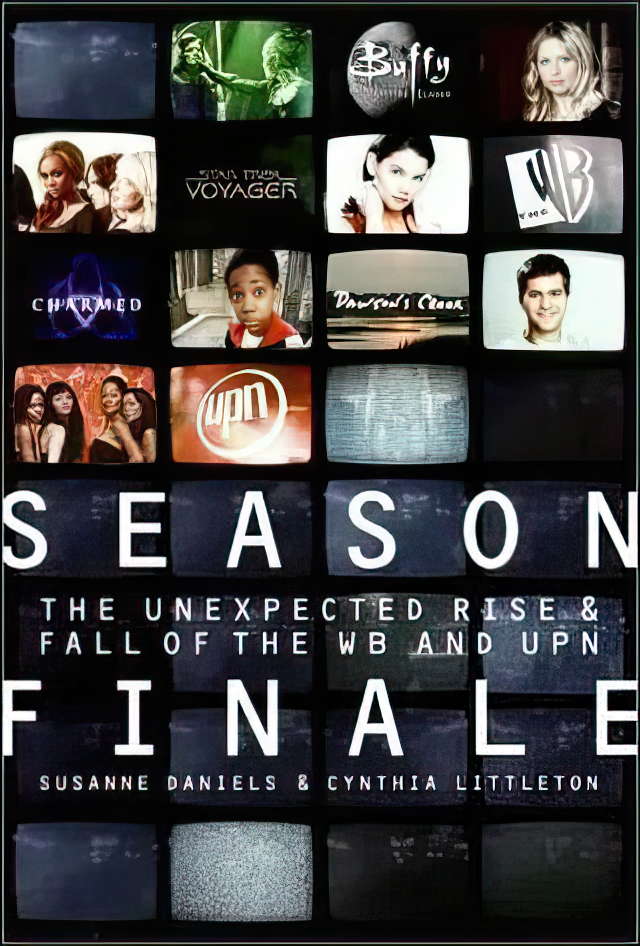 Story: Industry insiders trace the two rival attempts to create the “fifth network” of the 1990s – Warner Brothers’ WB network and the United Paramount Network, from the earliest discussions of starting them through their mutual decline and merger into the 21st century CW network. Spoiler: neither of the networks, only a handful of the networks’ shows, and only some of their executives’ careers, make it out of the story alive.
Story: Industry insiders trace the two rival attempts to create the “fifth network” of the 1990s – Warner Brothers’ WB network and the United Paramount Network, from the earliest discussions of starting them through their mutual decline and merger into the 21st century CW network. Spoiler: neither of the networks, only a handful of the networks’ shows, and only some of their executives’ careers, make it out of the story alive.
Review: As a promo writer/producer at two UPN stations in the 1990s – one in Arkansas, one in Wisconsin – it was my job to try to make all of the network’s shows look good to our audience, as best I could, with the material the network made available to us. It wasn’t easy. UPN was a schizophrenic beast: hip, urban humor one night, sci-fi the next night. And when the network suddenly claimed all five weeknights for its fall 1998 season, that wild spread of shows and genres got even wilder. I always wanted to know: how did those decisions get made, who made them, and why did the promotional push for that…diverse (trying to be charitable there)…1998 season seem to evaporate as soon as the shows premiered?
Written by WB programming executive Suzanne Daniels and Daily Variety reporter Cynthia Littleton (likely drawing from her own coverage of UPN), Season Finale answers that question and many more. Both networks had chaotic births and tumultuous upbringings, to put it mildly. Each studio had a large broadcast station group as a major partner – Warner Bros. had help from Tribune in launching the WB, while Paramount had a somewhat uneasier bedfellow in the Chris-Craft television group for UPN – and, invisible to the average viewer, each of these partners could vet business and creative decisions, and could cause severe contractual headaches for their respective studio partners. Chris-Craft, in particular, had already been burned by its own past collaboration with Warners to create an ultimately abortive mini-network called PTEN (now remembered mainly as a trivia answer among Babylon 5 fans), and triggered a major contractual crisis several years into UPN’s existence.
There’s a little bit of an imbalance in terms of perspective. Daniels was embedded at the WB, part of the executive team, and a key player in choosing (and cancelling) programming – she was there. UPN, on the other hand, is viewed somewhat from the outside in. Some key players at UPN were interviewed extensively after the fact, which makes up for some of that imbalance, but for much of the book it’s obvious that there’s a lot more of the WB’s “inside baseball” being dished than there is on the UPN side of things.
And that 1998 season that I wondered about? The network overspent on both the shows and their marketing, and the incoming UPN president found his support at the studio dying on the vine. The season he ushered in suffered the same fate, expensive promotional jingle and all. Those of us at the local station level trying to leverage the utterly strange “find yourself on UPN” campaign were blind lemmings swimming upstream uselessly. All these years later…that’s good to know.
The biggest surprise in the WB’s story is the uphill battle that Smallville (and its creators) fought to get on the air, flying in the face of conventional wisdom about the audience expectations of superheroes on film or TV. The current success of such shows as The Flash, Arrow, Supergirl, and even their Marvel counterparts such as Agents Of SHIELD and Powerless, owe a lot to Smallville kicking the door open for the genre. (I’d argue that Marvel’s big-screen outfit has swung the superhero genre back into the “guys in tights” genre that Smallville strove to avoid, but that’s a discussion for another time.) The WB almost didn’t green-light Smallville simply because of the resistance to doing Superman on TV – bear in mind that Lois & Clark hadn’t been that long ago at the time Smallville was being pitched – which would’ve meant taking a pass on one of their biggest breakout hits.
After all, Smallville stayed on the schedule after the WB and UPN were stuck into a media-merger blender and became the CW, a network that nowadays is fairly crawling with superhero shows. Season Finale ends with that merger and the shutdown of WB and UPN as they had been, and in many cases, the dismissal of several of the long-term figures in both networks’ history.
Another big error in judgement at WB, one which wasn’t overridden: a fork in the road where the network refused to start a pre-Youtube streaming video service. An object lesson, should any be needed, that broadcasters failing to embrace the future will become a thing of the past. (The CW offers free streaming of its shows now: lesson learned.)
Even those from outside the broadcast industry will find a wealth of such forehead-slapping forks in the road in Season Finale. It’s quite a story…all of it true.
Published: October 16, 2007
Authors: Susanne Daniels, Cynthia Littleton
Publisher: Harper
Pages: 400



